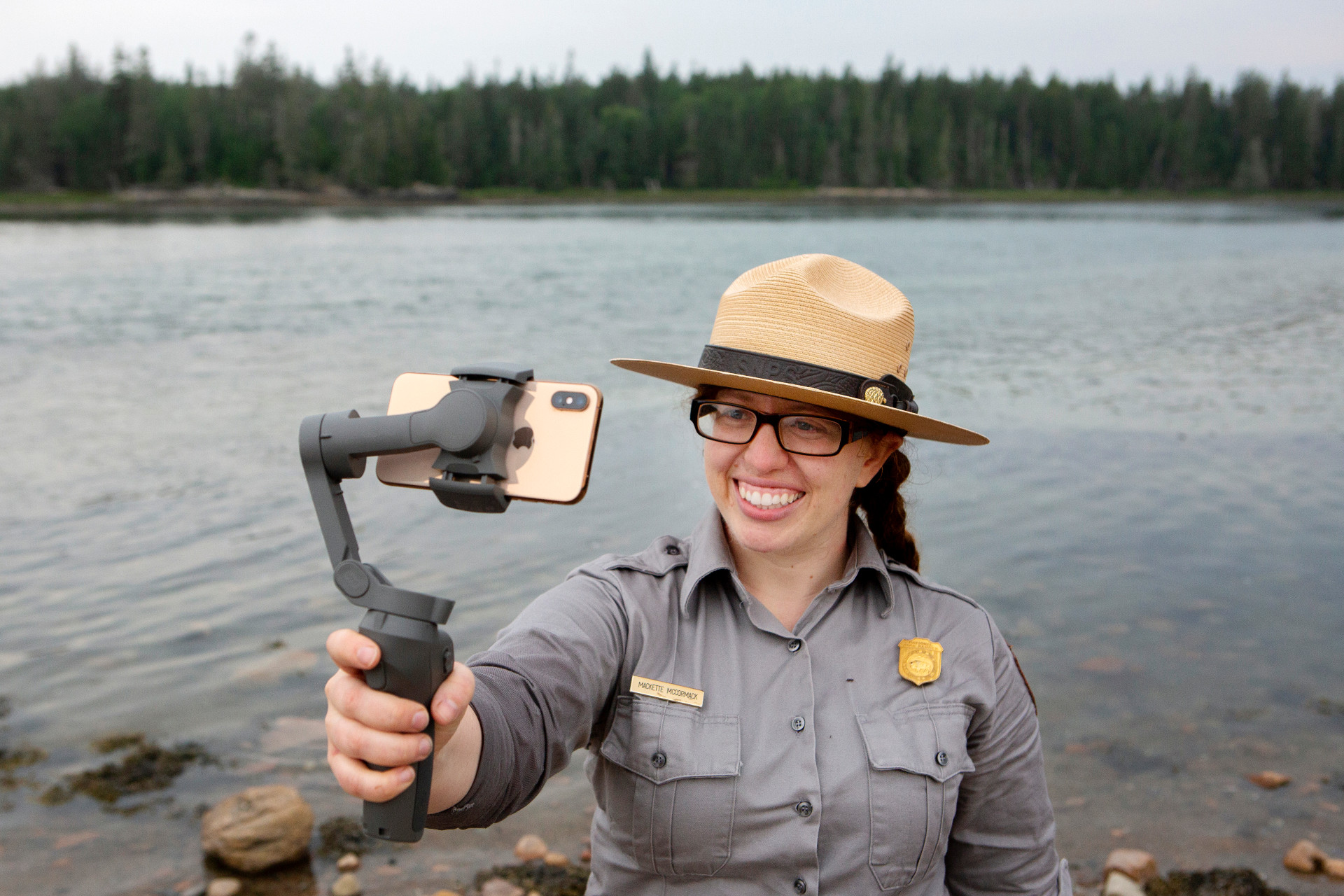Education Ranger Mackette McCormack developed a program around climate change that enables students to learn, engage, and problem solve.
July 29th, 2022
July 29th, 2022

Acadia National Park Education Ranger Mackette McCormack, seen here filming an educational video about tide pools, has developed a program around climate change that enables students to learn, engage, and problem solve using the Resist-Accept-Direct (RAD) framework. (Photo by Ashley L. Conti/Friends of Acadia)
BY SHANNON BRYAN
Students are natural problem solvers, says Acadia National Park Education Ranger Mackette McCormack. To get them thinking seriously about the impacts of climate change, she modified a National Park Service initiative known as Resist, Accept, Direct (RAD), with 6th to 10th graders specifically in mind.
“Climate change is a hard topic,” she said. “I’ve talked about paleo-ecological records in glaciers, historical changes caused by climate, phenology, and ocean and forest climate change.” But what really gets students engaged, she said, is when there is something they can do right now-to be part of the solution.
“RAD became this fantastic bridge for student agency and building background,” McCormack said.
The RAD framework, which is being employed by Acadia National Park and other national parks around the country, recognizes that the climate has already changed and will continue to do so. Decision makers then assess and choose what changes within the environment to resist, accept, or direct, based on a number of criteria including feasibility and cost. For students, RAD becomes a tool to make informed decisions in the future.
“The RAD model accepts where we are without putting the onus on the students to save the world,” she said.
McCormack has presented the program virtually about a dozen times to students in grades 6-10, but she’s found the most enthusiasm for the program in 7th and 8th grade teachers in Maine. The program will be offered again in late fall when Acadia’s education rangers return to virtual programming.
“I like teaching RAD to kids because choices are important,” said McCormack. “It’s so important to start stretching those problem-solving muscles in real-world scenarios, and RAD does that well.”
Creating Tomorrow’s Stewards Through a Creative Blend of Virtual, Self-guided, and In-person Programming
Read MoreSHANNON BRYAN is Friends of Acadia’s Content and Website Manager.